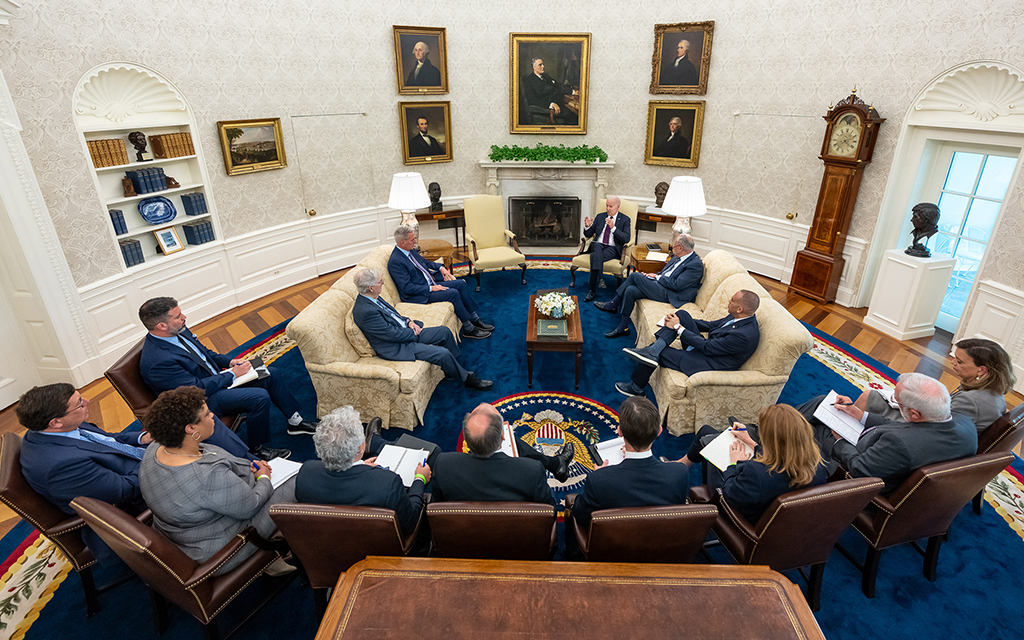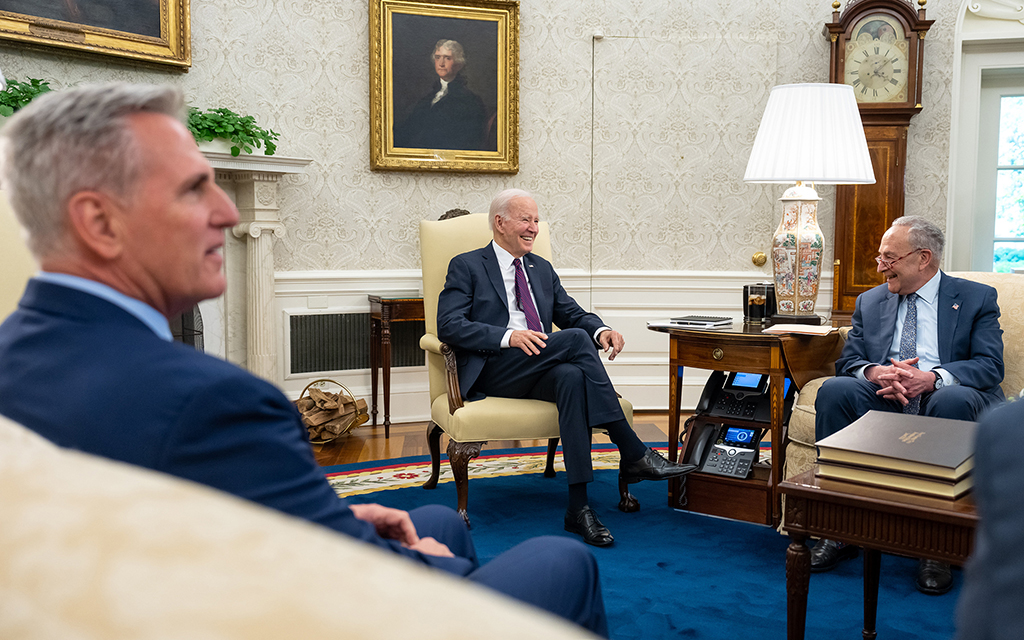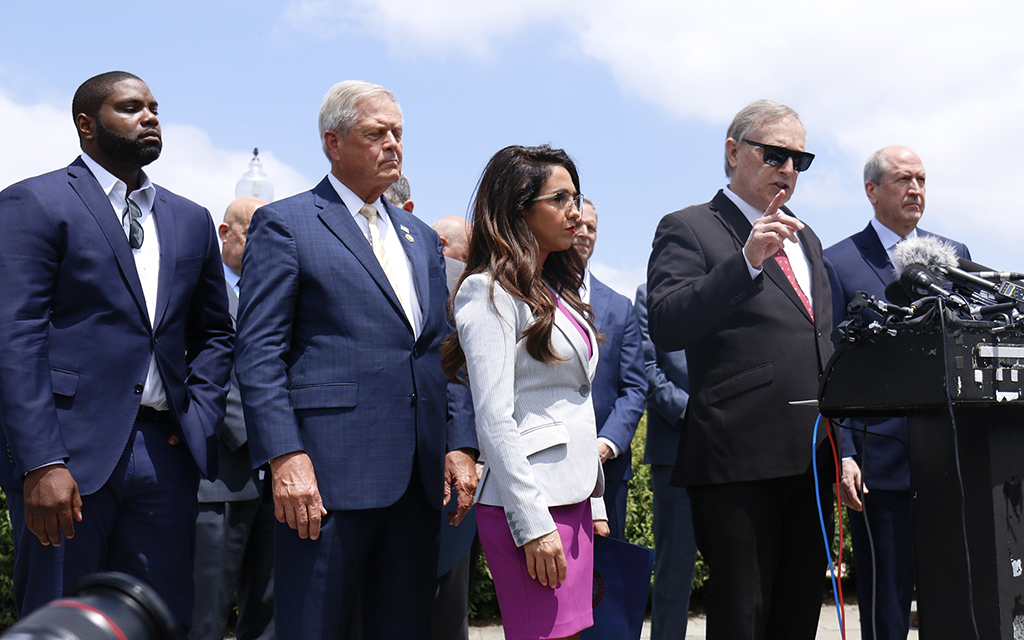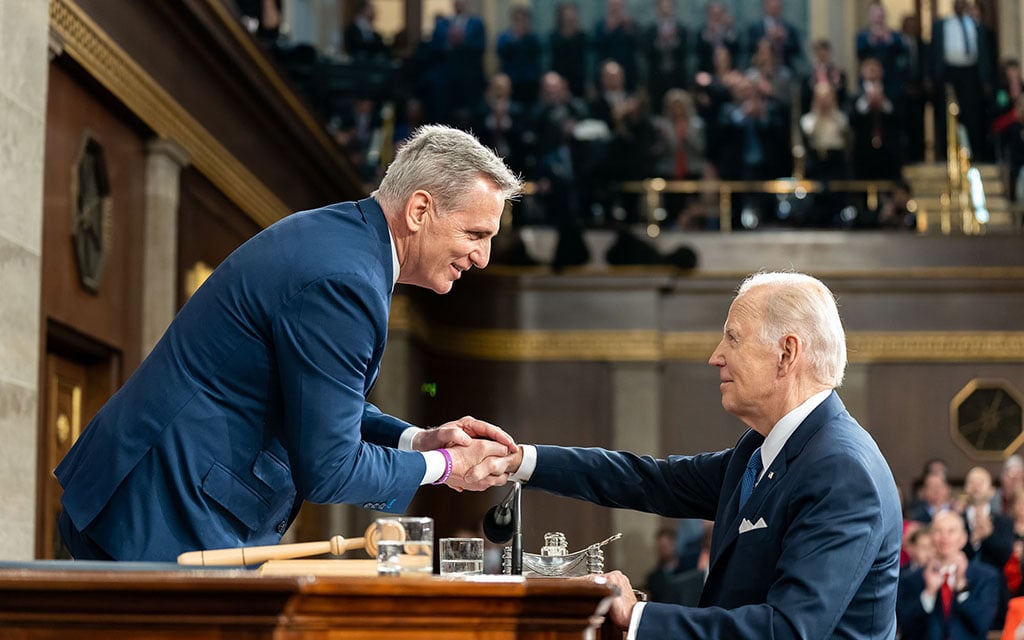WASHINGTON – The Senate gave final approval late Thursday to a bill to suspend the debt ceiling, just days before Monday’s “X-date” when Treasury officials said the government would run out of money and default on its debts.
The 11 p.m. vote came after senators rejected a string of amendments to reach a final vote on a bill that few embraced. It passed with little time to spare following weeks of negotiations between the White House and House Republicans.
“This was a prime example of the sausage-making factory in front of us not exactly looking pretty,” said Bradford Fitch, president and CEO of the Congressional Management Foundation. “Divided government requires the process to be messy.”
The Fiscal Responsibility Act passed the Senate 63-36 Thursday, a day after it passed the House on a bipartisan 314-117 vote. President Joe Biden was expected to sign the bill over the weekend.
Arizona’s two senators, both of whom voted for the bill, said it should not take a threat of default to get Congress to act.
“We should never even get this close to defaulting. The full faith and credit of the United States should never be in question,” Sen. Mark Kelly, D-Ariz., said before Thursday’s vote. “I think it’s ridiculous that time and time again we get this close.”
This was not the first time Congress has run right up to the deadline on critical legislation, and it’s not likely to be the last, said Thomas Kahn of American University’s Center for Congressional and Presidential Studies.
“If you have the same dynamics in two years, with a Democratic president, Republican Congress, yes, I don’t have any doubt Republicans will use the threat of default to extract concessions once again,” Kahn said.
“Historically, Republicans are much more wary of voting for debt ceiling increases and use it as leverage to get other things,” said Kahn, who spent more than 30 years working in Congress, 20 years of which were on the House Budget Committee.
That’s exactly what House Speaker Kevin McCarthy did. He said Republicans would agree to raise the debt ceiling above $31 trillion if the White House agreed to negotiate on budget cuts and policy changes.
Without a higher debt ceiling, the government would not have been able to borrow money to pay its bills, resulting in a default that experts say would lead to economic catastrophe. After initially refusing to negotiate, Biden agreed to talks.
Those negotiations led to a bill that suspends the debt limit until 2025, rescinds billions of unused pandemic-relief funds and proposed IRS funding, and includes several policy changes sought by Republicans. The bill streamlines the permitting process for energy projects and imposes new work requirements for federal assistance programs. It also caps nondefense discretionary spending.

President Joe Biden initially refused to negotiate over the debt ceiling but relented, as seen in this May 9 White House meeting with congressional leaders. (Photo by Adam Schultz/The White House)
The final product was criticized by conservatives for not going far enough to rein in spending and by progressives for giving in to GOP demands. That divide was reflected in the final House and Senate votes, with the right and left wings of each party voting against the bill.
But most were like Kelly, who said the risk of default outweighed disagreeable portions of the bill.
“I’ve got concerns on a number of things in the legislation, you know, compromise is essential here so we don’t go over this fiscal cliff,” he said before the vote. “I think sometimes a responsible compromise is that there are things that we’re not all happy about.”
In a prepared statement, Sinema said “default is not an option and Congress’s willingness to hold our nation’s economy hostage for political points is wrong.”
The bill could have been derailed Thursday in the Senate, when leaders allowed limited debate on 11 amendments that, if approved, would have forced the bill back to the House with the clock ticking.
Republicans offered 10 amendments, on everything from immigration to trade with China, and Sen. Tim Kaine, D-Va., tried to stop fast-tracking of the Mountain Valley Pipeline. Kelly voted against all the amendments while Sinema opposed all but one, an amendment that would have increased defense spending.
All 11 amendments failed, setting up a final vote shortly before 11 p.m.
Kahn saw the effects of default brinksmanship firsthand. When President Barack Obama and then-Speaker John Boehner took negotiations up to two days before a possible default in 2011, he said, the stock market dropped significantly and interest rates rose, costing Americans more than $1 billion.
Kahn said defaulting on our debt would send the country into a recession, resulting in hundreds of thousands of lost jobs, skyrocketing interest rates and a severely damaged stock market. That could endanger Social Security and Medicare payments and military salaries.
“The government would have to pick and choose which bills to pay and which couldn’t,” he said. “It would create a really holistic set of choices.”
Kahn said that, unlike years past, there are now “a growing number of people who actually are willing to go into default unless their concessions are met.”
Like Kahn, Fitch thinks the process could repeat itself in the future, though maybe not as dramatically.
“This one was definitely a little bit more of a cliffhanger because of the timing involved,” Fitch said. “I just always like to point out that anytime we have divided government, it never looks great.”



